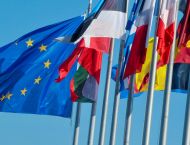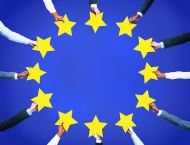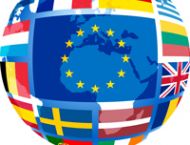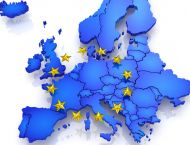
Sport diplomacy in EU
Since its inception, Europe has become more prosperous, more integrated, and more of a player in international affairs. Between 1989 and 2014, the European Union (EU) practically doubled its membership and catapulted into third place in population behind China and India. It currently boasts the world's largest economy and also heads the list of global trading powers. In 2012, the EU won the Nobel Peace Prize for transforming Europe "from a continent of war to a continent of peace."
In recent years however, challenges have multiplied: the European Union has suffered an unprecedented number of threats, dramatic events and crises which have deeply affected its reality, changed its perception of itself and altered the way it is regarded by the outside world. Peace that reigned across Europe since the end of World War II has been shattered and its core values have been contested. Since 2015, monstrous terrorist attacks have killed and injured hundreds of people on European soil. Calculated murders of civilians had already occurred since 2004 in Madrid, London and Copenhagen. The difference is that, with the recent attacks in Paris and Brussels, there is now an acceptance by the EU leaders, the EU population and in third countries that these attacks will continue. Furthermore, Europe has to deal with a new form of war that wants to destroy what Europe stands for, its way of life and its values. Protecting these values, while dealing with war, is the new challenge that the Member States and the EU institutions need to tackle.
It is with this in mind that Commissioner Tibor Navracsics (2014-2019) mandated a High Level Group (HLG) to assess the potential of sport in EU diplomacy. This new approach to sport as a diplomatic tool emphasises the positive values of sport and their impact in building a more cohesive society, in fuelling education, economy, culture and employment, in improving health and in shaping a better world through nurturing dialogue, development and peace. In doing so, the EU shall continue fostering its policies against the threats to sport such as inter alia doping, match fixing, money laundering, corruption, racism and xenophobia, violence and hooliganism, child exploitation and other negative effects of player transfers.
Sport can and should play a role regarding different aspects of the EU's external relations: as an element of external assistance programmes, as an element of dialogue with partner countries, as a “facilitator” of the EU’s and its Member States’ relations with the wider world, and as a part of the EU's diplomacy.
As stated in its engagement letter, the aim of the HLG is to assess the value of sport in EU external policies, and in public diplomacy in general. It is to identify how sport can make a contribution to the EU’s endeavour to reach its external political aspirations (e.g. easing relations with partner countries). The HLG is composed of 15 personalities having valuable experiences and knowledge in the field of sport (athletes, ex-athletes, politicians, researchers, writers, representatives of sport organisations, IOC members). Between its establishment in October 2015 and the handing over of the present report in June 2016, the Group met 6 times. External speakers (independent experts, representatives of the sport movement, Member States, public authorities or sport stakeholders, as well as representatives of third countries) were invited on an ad-hoc basis to fuel the thinking of the group. The Commission provided expertise, as well as logistical and secretarial support to the work of the Group. The Group was chaired by IOC member and former President of the Hungarian Republic Pál Schmitt. The two rapporteurs were Valérie Fourneyron (former Sport Minister in France and Chair of the WADA Health, Medical and Research committee) and Thierry Zintz (University professor, Chairman of the European Observatory of Sport and Employment, Vice-Chairman of the Belgian Olympic and Interfederal Committee and Member of the Olympic Education Commission of the International Olympic Committee).

WHY THE EU SHOULD USE SPORT IN ITS EXTERNAL RELATIONS AND DIPLOMATIC OUTREACH:
ON ONE HAND, the European Union develops an undeniable humanistic approach to foreign affairs and foreign actions, which is unique in the world.
The EU foreign and security policy, which has developed gradually over many years, enables the EU to speak and act as one in world affairs. It seeks to:
- preserve peace and strengthen international security,
- promote international cooperation,
- develop and consolidate democracy, the rule of law, respect for human rights and fundamental freedoms.
The EU joint foreign and security policy is designed to resolve conflicts and foster international understanding. In that regard, it is exclusively based on diplomacy. Trade, humanitarian aid, security and defence often play a complementary role.
As the world's largest donor of development finance, the EU is also uniquely placed for cooperation with developing countries.
The EU maintains partnerships with the world's key players, including emerging powers. It seeks to ensure that these relationships are based on mutual interests and benefits. The EU holds regular summits with Canada, China, India, Japan, Russia and the United States. Its international relations encompass education, human rights, the environment, security and defence, and the fight against crime.
ON THE OTHER HAND, sport is a recognised and influential instrument for promoting peace, understanding and intercultural dialogue, as it disregards both geographical borders and social classes. It also plays a significant role as a promoter of social integration and economic development in different geographical, cultural and political contexts.
Sport is a powerful tool to strengthen social ties and networks, and to promote the ideals of peace, inclusion, fraternity, solidarity, non-violence, tolerance and justice. Tackling problems in post-conflict situations can be eased as sport has the ability to bring people together, to build confidence and active citizenship.
Sport benefits from an excellent image around the world and is strongly associated with Europe, since Europe is the place where modern sport first emerged and from which many sports started their journey around the planet. In a recent survey on “ The image of the EU in the world, it is shown that Sport and Culture are the best perceived competencies of the EU. However 50% of the participants to the survey consider that sport is strongly associated with Europe while only 17% establish a relation between sport and the European Union.
What is more, Europe is composed of individual countries where sport is kept in high esteem, strongly supported, and produces outstanding performances. Still, for the time being, its potential is mainly only tapped on the national level. In recent years, the EU has played a more prominent role in sports policy, the Lisbon Treaty of 2009 having defined sport as a new EU competence that supports the actions of the Member States. However, within this framework, the role of sport as a diplomatic tool for the EU has not been fully explored. In producing this report, the HLG wishes to highlight the potential of sport in this regard.
Because the EU foreign policy objectives and values of sport do match, it is the HLG belief that sport can help the EU reach many of its external political ambitions. Sport can be an element of dialogue and cooperation with partner countries and third countries as part of the EU's diplomacy. It can facilitate the EU’s and its Member States’ relations with the wider world.

HOW SPORT CAN BE INTEGRATED IN THE EU’S EXTERNAL RELATIONS
Since the end of the Cold War, the approach of diplomacy is getting softer and the overall weight of soft diplomacy in the “diplomatic mix” is getting stronger: diplomatic work has expanded from solving problem between states (or Union s like the EU) to bridging gaps between peoples, and there has been an increase in the scope and diversity of diplomatic actors (Zhang, 2013). Sport organisations realise that they can play a part in diplomacy and help build a better world. They are today more open minded in considering cooperation with governments. With this mission in mind, many sport organisations are actively participating in international affairs. Recent cases concerning the Olympic Movement include the agreement between the Internati onal Olympic Committee (IOC) and the United Nations (UN) to strengthen collaboration in using sport as a tool for peace and development, and the IOC Honorary President Jacques Rogge’s work as the UN Special Envoy for Youth Refugees and Sport (IOC, 2014 & U N, 2014). Other agreements have been concluded at the European level such as the Arrangement for Cooperation between the European Commission and the Union of European Football Associations (UEFA), adopted in October 2014 This partnership agreement commits the two partners to work together regularly in a tangible and constructive way on matters of shared interest such as the integrity of sport, respect for human rights and dignity, non discrimination and solidarity.
To understand the role of sport as a tool of diplomacy, we introduce two important concepts, soft power and public diplomacy, to build a background framework.
Sport and Soft Power
The first important concept in understanding sport as a tool of diplomacy is Soft Power. Joseph Nye (2004) def ined this concept at the end of the Cold War as the nation’s ability to obtain its desired outcome not through coercion or payment, but through attraction, particularly through the attraction of its culture, its political values and its domestic and foreign policies. Soft power is opposed to hard power, which means threatening military force and economic sanctions or promising economic incentives. According to Nye (2004), soft power rests not only in the hands of the state actors (government agencies), but also in the hands of the various non state actors (businesses, individuals, non governmental organisations, etc.). Here we mainly look at culture as a source of soft power. Nye (2004) believes culture contributes significantly to a nation’s (EU’s) soft power.
Nye (2004) distinguishes between high culture and popular culture. High culture such as literature, art and education is directed at elites in a nation, whereas popular culture such as TV, movies and popular sport aims to entertain the general publ ic. Popular sport, as a part of popular culture, plays an important part in communicating values and is a source of cultural soft power.
Sport is a part of soft power diplomacy, because it is a source of cultural attraction.

Sport and Public Diplomacy
Public diplomacy is better understood through comparison: traditional diplomacy is the actor’s attempt to manage its international environment through engagement with another actor, whereas public diplomacy is the actor’s attempt to manage its international environment through engagement with a foreign public (Cull, 2009). While old public diplomacy focuses on government agencies’ effort to persuade a foreign public to
influence their government, new public diplomacy is an instrument used by a state or no n state actor for the purpose of understanding cultures, attitudes and behaviours, building and managing relationships, and influencing thoughts and mobilising actions to advance the actor’s interests and values (Pamment, 2013).
Today’s public diplomacy has a few key features:
- First, there are diverse actors, not only state actors (government agencies), but also non state actors such as non governmental organi s ations, businesses, individuals and civil societies.
- Second, the means of public diplomacy is public engagement, which has evolved from an actor to people approach (old public diplomacy) to a people to people approach with the actor playing the role of the facilitator (new public diplomacy). In other words, audiences foreign to each other have contacts and build relationships with the actor facilitating their interaction and communication.
- Third, in spite of its development, the end goal of public diplomacy remains managing the international environment for one’s interests. There has always been an emphasis on the use of public diplomacy to achieve one’s policy goals.
According to Cull (2009), public diplomacy has five core approaches:
- Listening: gathering information about the foreign public and their opinions (usually through media monitoring and public opinion polling), and using that data as a basis of decision making.
- Advocacy: undertaking an international communication activity to actively promote particular policies or ideas in the minds of the foreign public.
- Cultural diplomacy: making one’s cultural resources and achievements known overseas and facilitating cultural transmission abroad (cultural diplomacy often overlaps with exchanges).
- Exchange diplomacy: exchanges of visits between citizens of different countries to generate internationa l understanding (exchanges often overlap with cultural work, and can also be used for advocacy purposes).
- International broadcasting: using media technologies of radio, television and Internet.
Sport works softly as a diplomatic lubricant (Cha, 2009). Sport can create public interest and public goodwill, and appeal directly to the general public, so as to provide a favourable environment for a nation to manage its international relations. Though rarely itself a sufficient condition for diplomacy, sport can be effective in facilitating changes or increasing momentum in diplomatic practices (Cha, 2009). In its recommendations, the HLG will deal with sport as a tool of “soft power” to be used in 3 of the 5 approaches that define “public diplomacy”: advocacy cultural diplomacy and exchange diplomacy.

HOW SPORT DIPLOMACY CAN FIT IN EUROPEAN POLICIES
The Lisbon Treaty calls for greater horizontal and vertical coordination of EU international activity and, consequently, of EU public diplomac y. It also provides three important organi s ational innovations for the horizontal coordination (between institutions and policies) of the EU’s international activity and public diplomacy.
- Firstly, it announces the creation of the European External Action Service (EEAS), the official EU diplomatic service. This includes a headquarters in Brussels and multiple EU Delegations (which replace the delegations of the European Commission, representing the EU as a whole and not only the Commission) in third countries and international organisations (such as the UN, the WTO and the Council of Europe).
- Secondly, the Lisbon Treaty creates the post of High Representative of the Union for Foreign Affairs and Security Policy/Vice President of the European Commission. Finally, the European Council is institutionali s ed, and the role of the previous rotating Presidency of the European Council is assumed by a fixed and full time President. By eliminating the rotating Presidency, which tended to introduce new priorities in foreign relations according to the short term interests of the Member State in post, the EU creates more continuity in its diplomatic representation, policy priorities, and message to be spread.
In Article 165, the Lisbon Treaty also makes the following breakthrough when it comes to how sport is considered:
“… 2. Union action shall be aimed at … developing the European dimension in sport, by promoting fairness and openness in sporting competitions and cooperation between bodies responsible for sports, and by protecting the physical and moral integrity of sportsmen and sportswomen, especially the youngest sportsmen and sportswomen. … 3. The Union and the Member States shall foster cooperation with third countries and the competent international organisations in the field of education and sport, in particular the Council of Europe.
Sport can act as a “diplomatic lubricant” in almost all the areas mentioned above. For the purpose of being as efficient, actionable and specific as possible, and taking into consideration the Lisbon Treaty provisions, the HLG has limited the scope of its thinking to the areas in which sport can bring the most added value in order to improve and serve the EU’s external relations objectives and ambitions.
Source: High Level Group on Sport Diplomacy - Report to Commissioner Tibor Navracsics (full document available at Sport diplomacy resources section)
Testimonials








 Project "Sport Diplomacy Academy" /2018-1-EACS-EMS-000114/ is co-funded by the European Union. This webpage and the information / publication / communication reflects the views only of the author, and the
Commission cannot be held responsible for any use which may be made of the information contained therein.
Project "Sport Diplomacy Academy" /2018-1-EACS-EMS-000114/ is co-funded by the European Union. This webpage and the information / publication / communication reflects the views only of the author, and the
Commission cannot be held responsible for any use which may be made of the information contained therein.


